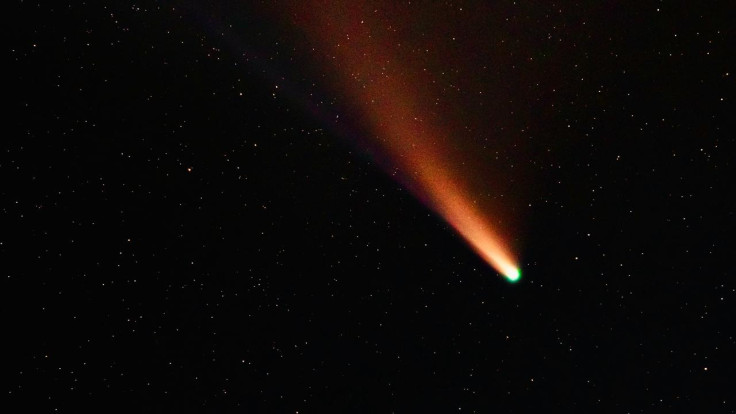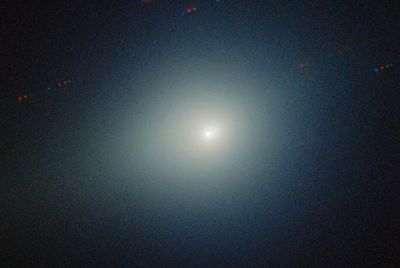3I/ATLAS: 'Not Behind the Sun' – Dr. John Brandenburg on What Fooled Observers
3I/ATLAS: Scientist clarifies 'sun glare' confusion, testing 'alien' theory.

Has the interstellar comet 3I/ATLAS vanished? Reports of the mysterious visitor disappearing 'behind the Sun' have sparked widespread confusion among observers and sky-watchers.
But according to scientist Dr. John Brandenburg, this is a simple, semantic misunderstanding. 'Friends, the confusion in the orbit of 3I ATLAS appears to stem from careless application of the term, "behind the Sun"', he clarified.
Brandenburg explained that the phrase 'can be interpreted as an actual occultation, but here means simply "behind the Sun's glare"'. The comet is not physically hidden, but is 'too close to the Sun to be seen well'.
This clarification comes just as the comet completed its milestone journey to perihelion, an event that will forever change the object and may finally put 'alien mothership' theories to the test.
What Its Fiery Sun-Graze on October 29 Really Means
The interstellar visitor reached perihelion on October 29. This is the critical moment scientists awaited, as the comet's icy body is subjected to intense solar heat.
This triggers sublimation, where the ice nucleus violently transforms into gas, shooting dust and material outward. As it 'outgasses', the coma—the fuzzy atmosphere around the nucleus—will grow significantly bigger, and its prominent tail will form.
A 'Dramatically Changed' Comet to Emerge in November
While 3I/ATLAS is currently lost in the solar glare, its appearance will undergo a 'dramatic change'. NASA predicts the comet, now at a distance of 210 million kilometres from the sun, will become 'extremely active'.
When telescopes on Earth and in space catch sight of it again in November, they expect to capture a much bigger and brighter object.
Scientists anticipate the new images will be 'drastically different' from any photos captured since the alien comet was first spotted on July 1.
Alien Mothership or Just Ice? The 'Mini-Probe' Theories
This solar encounter is also a crucial test for sensational theories from Harvard scientist Avi Loeb, who suggests it may be alien technology.
Speaking on Mayim Bialik's Breakdown YouTube show, Loeb proposed it could 'use the time behind the sun to swing towards Earth', a potential 'Oberth manoeuvre' to alter its course.
He also posited the 'mothership' could release 'mini-probes which perform a reverse Oberth manoeuvre to slow down at perihelion and intercept Earth'.
Friends, the confusion in the orbit of 3I ATLAS appears to stem from careless application of the term, "behind the Sun" - which can be interpreted as an actual occultation, but here means simply "behind the Sun's glare." Basically 3I ATLAS is too close to the Sun to be seen well pic.twitter.com/XwVA9uZ724
— Dr. John Brandenburg (@PhdBrandenburg) October 29, 2025
How Hera and Europa Clipper Will Get an Up-Close Look
While alien theories circulate, human-made spacecraft are positioned to gather hard data. Between October 25 and November 6, ESA's Hera and NASA's Europa Clipper missions might cut directly through the comet's ion tail.
This impressive tail is estimated to be 56,000 km long, based on observations from the Gemini Observatory. Hera is en route to the Didymos asteroid, while Europa Clipper heads to Jupiter's moon.
Furthermore, the ESA's Jupiter Icy moons Explorer (JUICE) will study 3I/ATLAS from the opposite side of the Sun, though its data transmission means findings may not be available until February 2026.
© Copyright IBTimes 2025. All rights reserved.



















